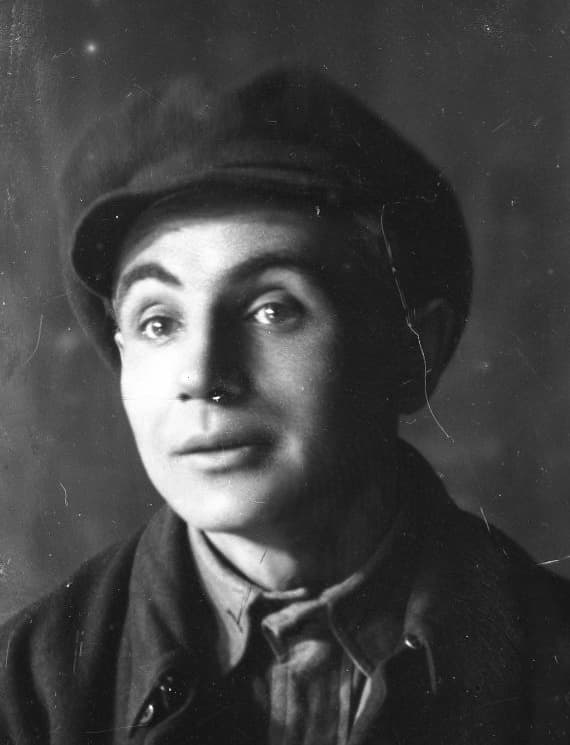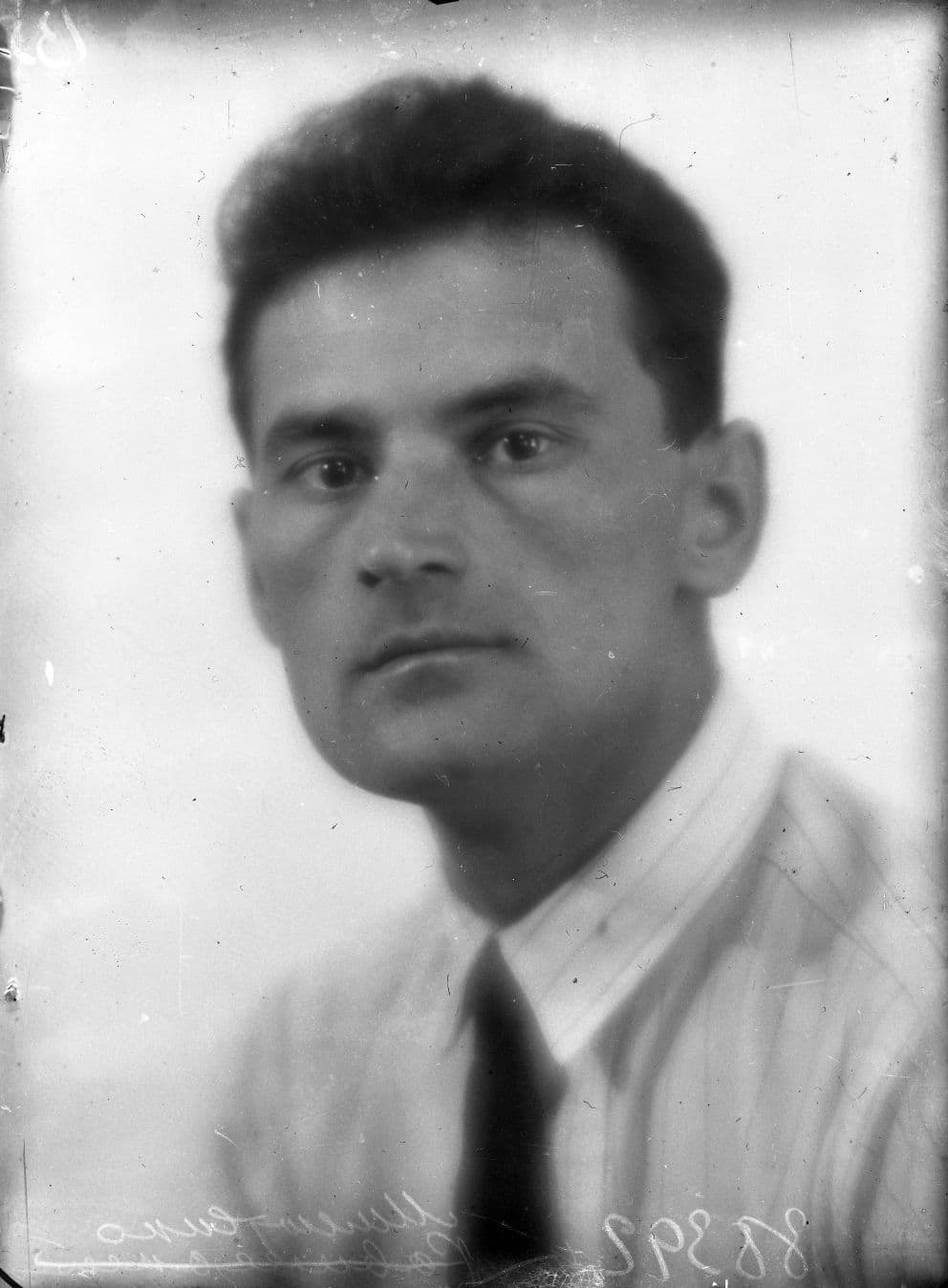February 22, 1899 – January 25, 1966
Dmytro Miliutenko was a Ukrainian theater and film actor, teacher, and student of Les Kurbas. He was born in Sloviansk, Donetsk oblast, where he graduated from the local boy’s gymnasium (1916). He would start his amateur theatrical career three years later. In 1920-1923 Miliutenko worked as an actor at the First Ukrainian Theatrical Troupe at Sloviansk Public Education Department and was artistic director of the drama studio at the soda plant. In 1923 he joins the Ivan Franko State Ukrainian Drama Theater in Kharkiv and finishes the two-year actor’s studio. In 1926 the theater is moved to Kyiv and Berezil is moved to Kharkiv. The following year Miliutenko joins Berezil, where he masters acting. His roles at Berezil and the Taras Shevchenko Ukrainian Drama Theatre include: the rooster in Dictatorship (1930), Puzyr in The Master, Zarembskyi in Maklena Grasa, the admiral in Destruction of the Squadron (1933), and Arkadii in Platon Krechet (1935). In the 1930s Dmytro Miliutenko tries his hand in teaching (Kharkiv Music and Drama Technical School, 1930-1934).
In 1936 Dmytro Miliutenko returns to the Ivan Franko Ukrainian Drama Theater, now in Kyiv, and works there for the next 30 years and becomes the lead actor. His roles include: the Grand Inquisitor (Don Carlos), Prince Shuisky (Boris Godunov), Kalytka (One Hundred Thousand), Malvolio (Twelfth Night), Haiev (Cherry Garden), Taras Shevchenko (Autumn in St. Petersburg), Khoma (Don’t Go, Hryts), the clown (King Lear). His portrayal of Taras Shevchenko in Ivan Kocherha’s The Prophet (1960) was notable. In total, Dmytro Miliutenko played more than 200 roles.
In 1943-1945 he worked as the artistic director of the First Front Theater Brigade that served the Third Ukrainian Front. Starting in 1946 he acted and taught at the Kyiv Karpenko-Karyi Theater Institute. He received a number of awards and titles: People’s Artist of Uzbekistan (1945), People’s Artist of Ukraine (1952), People’s Artist of the USSR (1960).
Dmytro Miliutenko starts acting in films in 1932 and demonstrates his versatility: in Lazar Bodyk and Isak Zhyvotovskyi’s The Clear Path (1932) he plays Petrash, the heroic commander of the Red partisans, the foreign saboteur Chandler in Heorhii Tasin’s The Big Game (1934). In that decade he played both negative characters from the Ukrainian revolution of 1917-1921 (the guest in Ihor Savchenko’s Guerrilla Brigade and Vynnychenko in Oleksandr Dovzhenko’s Shchors in 1932), and positive characters from the Ukrainian past (Yarema in Heorhii Tasin’s Karmeliuk (1938)) and Soviet modernity (Grandpa Makar in Matvii Volodarskyi and Mykola Krasii’s Kuban People (1939)). In the 1940s Miliutenko creates bright images of Crown Hetman Potocki in Ihor Savchenko’s Bohdan Khmelnytskyi (1941) and provocateur Berezhnyi in Borys Barnet’s The Scout’s Feat (1946). In the 1950s he stars in films (Hnat Yura and Tymofii Levchuk’s In the Steppes of Ukraine (1952), Viktor Ivanov and Hnat Yura’s One Hundred Thousand (1958)), and plays supporting roles in a number of films, including Uskov in Ihor Savchenko’s Taras Shevchenko (1951). He became famous in the 1960s for his role as the crazy old man in Andrei Tarkovsky’s Ivan’s Childhood (1962); Zadorozhnyi, the head of the collective farm in Kira and Oleksandr Muratov’s Our Honest Bread; and Uncle Ivan in Volodymyr Denysenko’s A Dream (1964). In 1965 he plays the lead role of old man Levko in Yurii Illienko’s A Well for the Thirsty, written by Ivan Drach. This would be his last film. A Well for the Thirsty would be banned by the Soviet authorities until 1987 for deviating from the principles of social realism.


